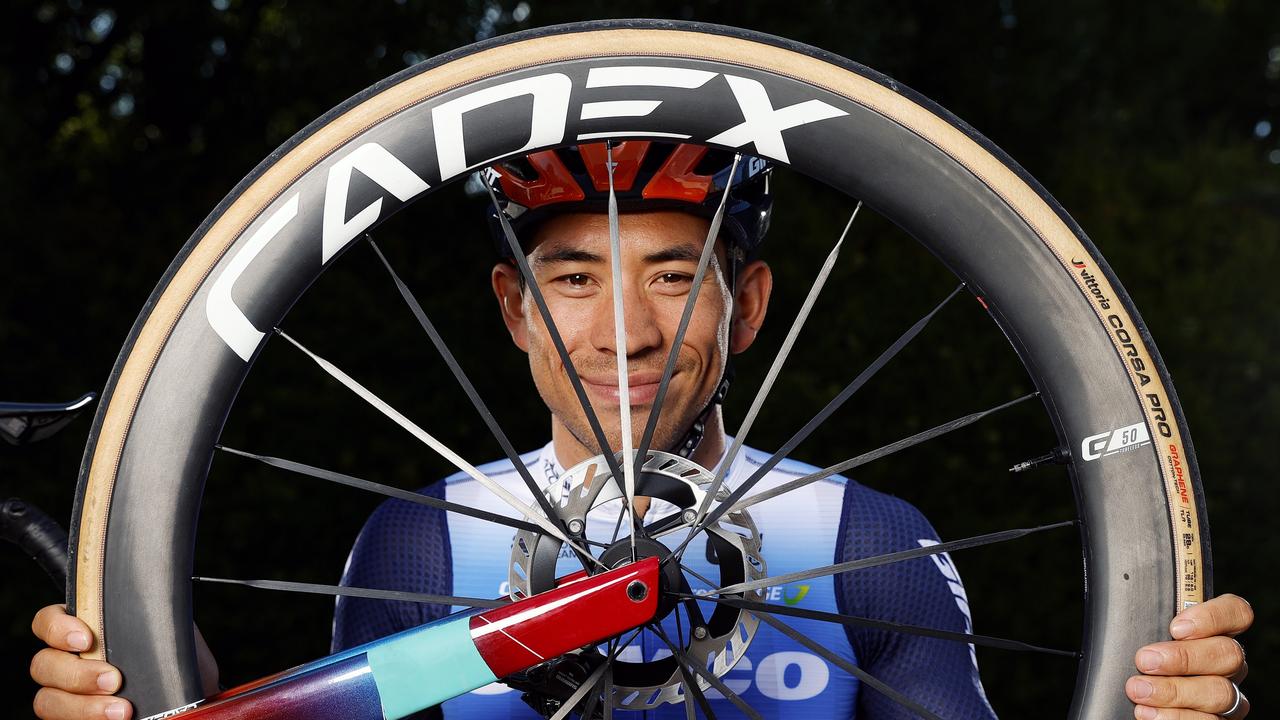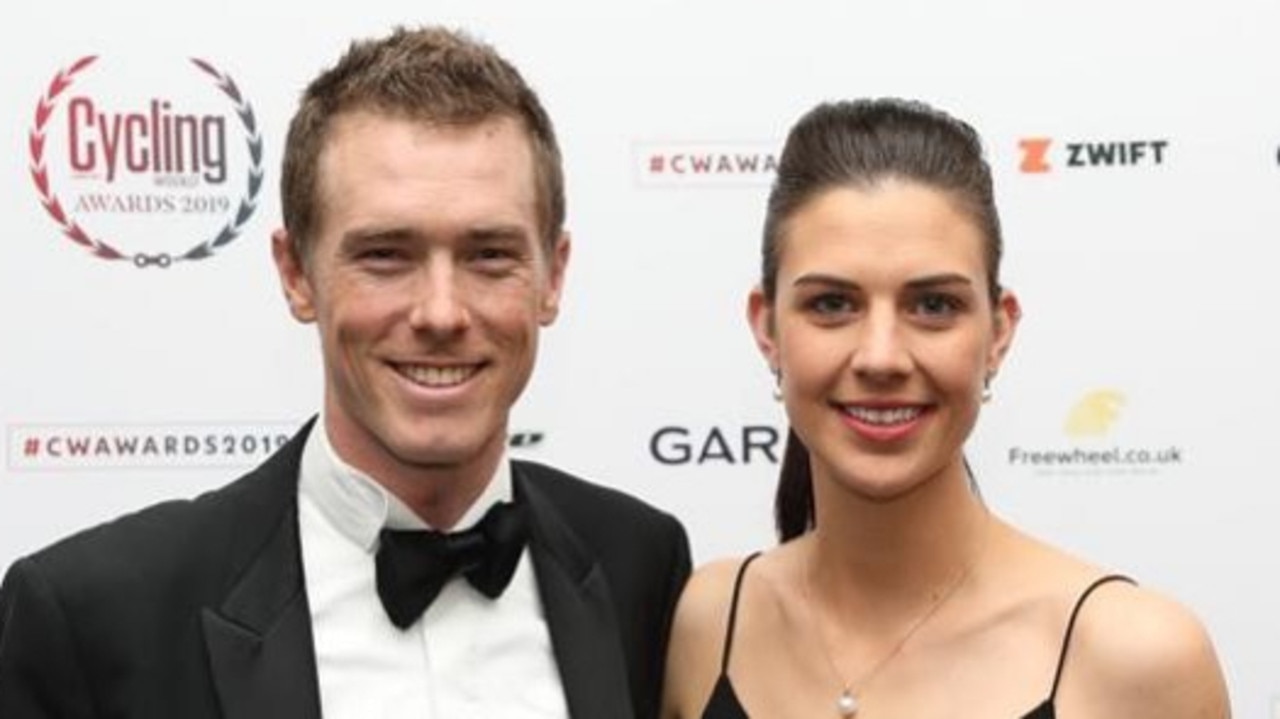Olympics 2020: The truth behind Australian cycling’s world championships failure
In 2012, Australia won six gold, six silver and three bronze medals at the world championships. This week in Berlin, it was one silver and two bronze. But it’s not the disaster it appears.
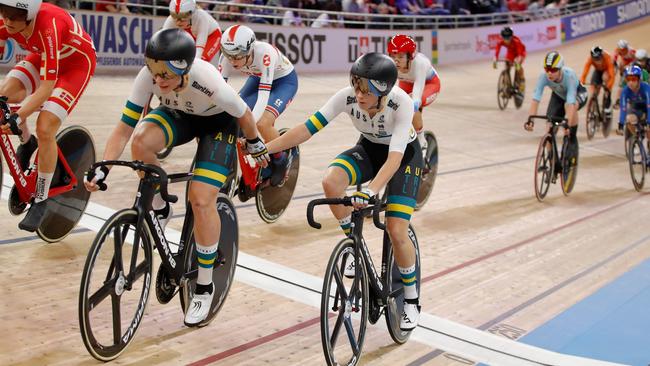
Cycling
Don't miss out on the headlines from Cycling. Followed categories will be added to My News.
One of two things will be happening at Cycling Australia HQ today.
Alarm bells will either be going off and coaches scratching their heads in mild panic after a completely underwhelming UCI track world championships in Berlin.
Or they’ll be making a coffee and telling themselves that everything is under control and going to plan five months out from Tokyo. We can only hope it’s the latter and that they’ve got this.
Watch over 50 sports LIVE on Kayo! Stream to your TV, mobile, tablet or computer. Just $25/month, cancel anytime. New to Kayo? Get your 14-day free trial & start streaming instantly >
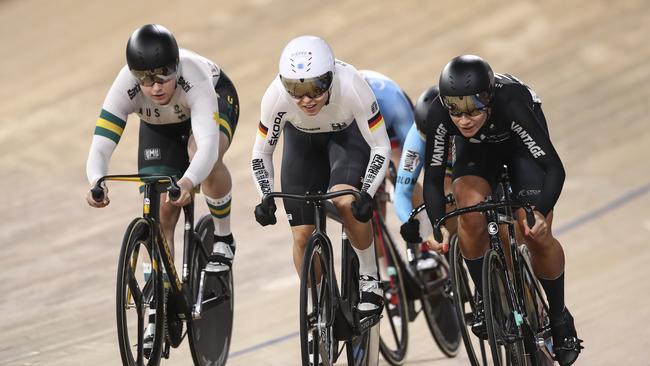
Four years ago after another failed Olympics in Rio, Australian cycling drew a line in the sand and said enough was enough.
Tired of dominating track world championships but flunking when it mattered at an Olympic Games, the high performance program was overhauled, the top dog replaced and the game plan torn up.
Simon Jones replaced long-time director Kevin Tabotta, bringing with him an intricate knowledge of the British program but also a message for Australian athletes, coaches and supporters – dream big, but you cannot have it all. Not in the same year anyway.
Jones’ message was that to win Olympic gold they would need to sacrifice something else and in 2020 that meant not being at their peak for the world titles which finished in Berlin on Monday.
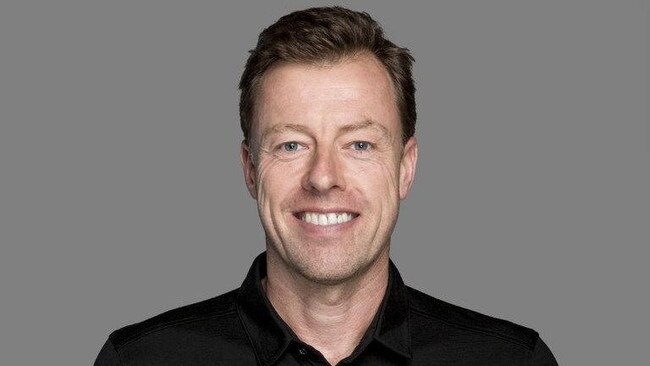
Australia’s performance was modest at best but it’s also possible that it was completely expected, although there would be some concern at Denmark taking four seconds off the Aussies’ team pursuit world record.
The Australian team – missing two of its biggest stars with injury in Kelland O’Brien (broken collarbone) and Matthew Glaetzer (calf) – finished with just one silver and two bronze medals.
It was the first time in 12 years the proud cycling nation has not won a gold medal at the world championships. But it’s also been eight years since we won a gold medal on the track at the Olympics so something had to change.
In 2012 and 2016, Australia delivered in March and ‘put the world on notice’. Only that warning failed to materialise into anything other than false hope and confidence.
In 2012 Australia won six gold, six silver and three bronze medals at the world championships. Then in 2016 it won two gold, two silver and one bronze.
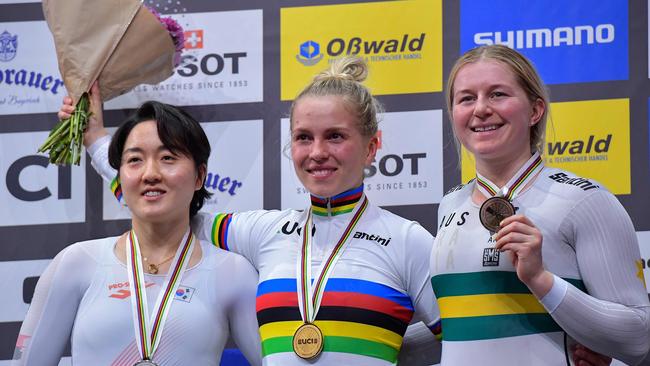
That all amounted to a grand total of just one gold medal at the respective two Olympics – Anna Meares’ miraculous upset over hometown hero Victoria Pendleton in London.
So recent history has told us that something about Australia’s pre-games preparation has been wrong, and now that they’ve flipped the script going into Tokyo, they must hold their nerve.
The sprinters were the shining lights in Berlin this week. Despite a knee injury to Steph Morton and back injury to Kaarle McCulloch over summer, they won silver in the team sprint. Morton then backed it up to win bronze in the women’s keirin on the final day of racing.
In the men’s ranks, Glaetzer’s late withdrawal saw Tom Cornish parachuted in for his world championship debut and he combined with Nathan Hart and Matthew Richardson to win bronze in the team sprint and book their spot for Tokyo.

The endurance riders failed to fire altogether. Both men’s and women’s team pursuits went in as defending champions and both missed the podium by finishing fourth. The world has stepped up and Australia’s men – who broke the world record twice in two years starting at the Gold Coast Commonwealth Games – now have five months to work out how they can find four seconds after the Danes’ stunning 4mins 14secs ride in Berlin.
There were some individual PB times but no endurance medal and experienced pair Amy Cure and Annette Edmondson were unable to even finish the women’s madison.
So as teams disperse to their respective countries and turn their attention wholly and solely to Tokyo, Australia may take some solace in the fact that its gaze was already firmly there.
Otherwise if they really are that far off the pace then Jones’ prophecy might be proven right in more ways than one – you cannot win it all, and you might also win nothing at all.
Originally published as Olympics 2020: The truth behind Australian cycling’s world championships failure


